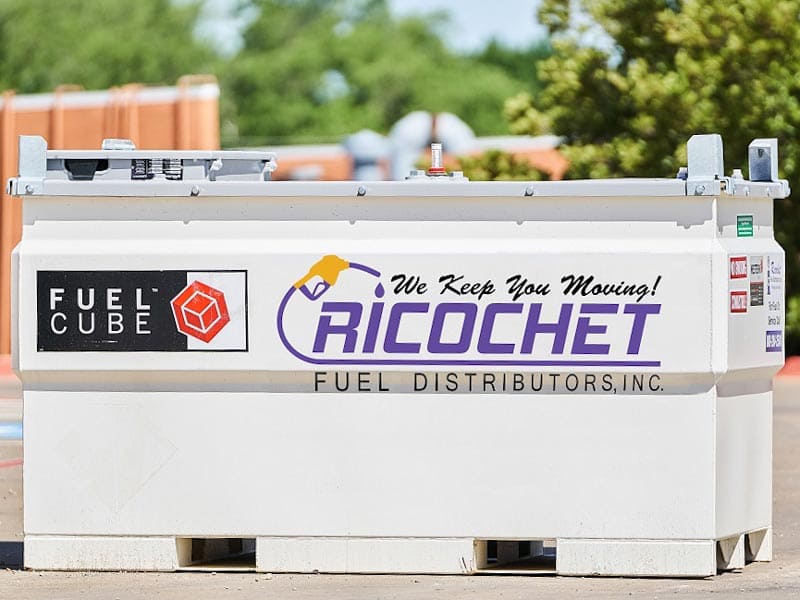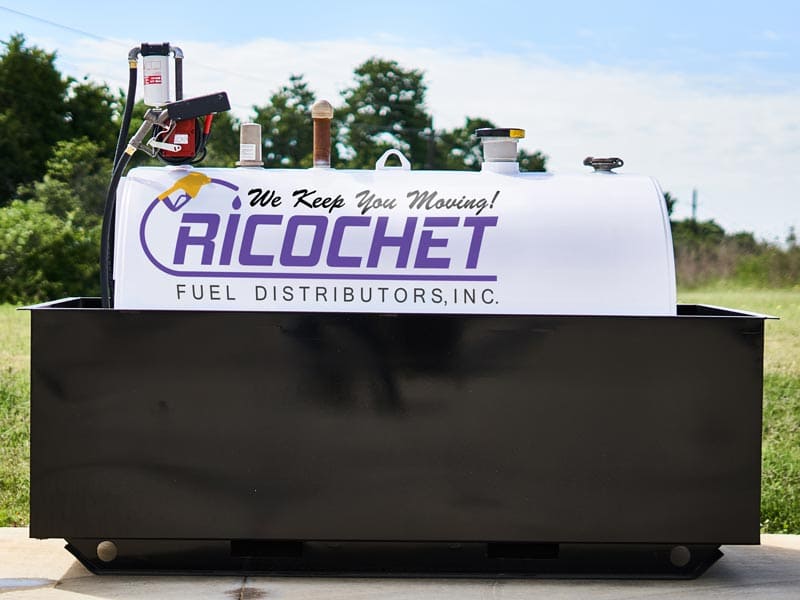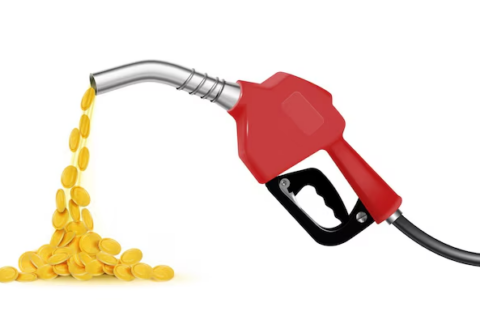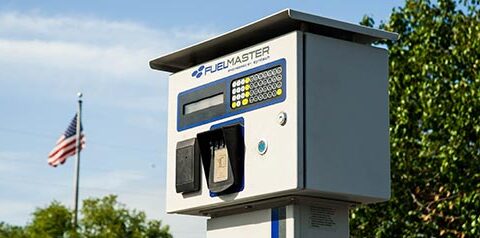Cube Style or Cylindrical Fuel Tank: Which is Best?
In the realm of fuel storage, the choice between cube-style and cylindrical fuel tanks can significantly impact operational efficiency and space utilization. Each tank type comes with its own set of advantages and considerations, making it essential for businesses to weigh their options carefully before making a decision. In this blog post, we’ll delve into the intricacies of cube-style and cylindrical fuel tanks, exploring their features, benefits, and considerations to help you choose the right fuel tank for your needs.
Understanding Cube-Style Fuel Tanks
Characteristics of Cube-Style Fuel Tanks
Cube style fuel tanks are characterized by their cubic or rectangular shape, featuring straight sides and sharp angles. These tanks are available in a range of standard sizes, offering flexibility in storage capacity. The standardization of sizes allows for easy stacking and transportation, making them a popular choice for businesses with limited space or frequently changing fueling needs.

Advantages of Cube-Style Fuel Tanks
- Efficient Space Utilization: Cube style fuel tanks excel in space optimization, making them ideal for environments with limited ground area. The compact design allows for efficient use of both horizontal and vertical space, maximizing storage capacity.
- Ease of Installation: Their compact design and standardized sizes facilitate easy installation, even in tight spaces. Additionally, cube-style tanks often come equipped with features like forklift pockets, making them easy to maneuver and position.
- Transportability: Cube style fuel tanks are easily maneuverable, and often equipped with features like forklift pockets for hassle-free transportation. This mobility allows businesses to adapt quickly to changing fueling requirements or relocate tanks as needed.
Considerations When Choosing Cube-Style Fuel Tanks
While cube-style fuel tanks offer several advantages, it’s essential to consider their limitations, such as:
- Limited Capacity: Cube-style tanks may have restrictions in terms of capacity compared to cylindrical tanks, especially in larger sizes. This limitation may require businesses to invest in multiple tanks or frequent refueling to meet demand.
- Structural Challenges: In larger volumes, the angular design of cube-style tanks may pose challenges in stress distribution and structural integrity. Businesses should carefully assess their storage needs and consider factors like load-bearing capacity and stability when choosing cube-style tanks.
Exploring Cylindrical Fuel Tanks
Features of Cylindrical Fuel Tanks
Cylindrical fuel tanks, on the other hand, boast a rounded or cylindrical shape, offering versatility and scalability in storage solutions. These tanks come in various diameters and heights, catering to diverse storage requirements. The cylindrical design of these tanks allows for seamless stress distribution, ensuring structural integrity even in larger volumes.

Benefits of Cylindrical Fuel Tanks
- Enhanced Structural Integrity: The curved design of cylindrical fuel tanks contributes to better stress distribution, ensuring enhanced structural integrity. This feature makes cylindrical tanks well-suited for storing larger volumes of fuel without compromising stability.
- Greater Storage Capacity: Cylindrical tanks typically offer higher storage capacity compared to cube style tanks, making them suitable for larger volumes of fuel. The scalable design of cylindrical tanks allows businesses to customize tank size to meet specific storage requirements.
- Versatility: Cylindrical fuel tanks are adaptable to various applications and industries thanks to their scalable design and proven versatility. Whether used for on-site fuel storage or mobile fueling solutions, cylindrical tanks offer flexibility and reliability.
Considerations When Opting for Cylindrical Fuel Tanks
Despite their benefits, cylindrical fuel tanks may present certain considerations, including:
- Space Requirements: Due to their rounded shape, cylindrical tanks may require more space for installation compared to cube style tanks. Businesses should assess available space and consider factors like clearance requirements and access for maintenance when choosing cylindrical tanks.
- Limited Mobility: While suitable for fixed installations, cylindrical tanks may require specialized equipment for movement, especially in larger sizes. Businesses with mobile fueling needs should consider the logistical challenges of transporting cylindrical tanks and ensure they have the necessary resources for installation and maintenance.
Fuel Tank Comparison: Cube vs. Cylindrical
| Factors | Cube Fuel Tanks | Cylindrical Fuel Tanks |
| Storage Capacity | Available in a range of sizes, from small to large capacities. | Offer a variety of capacities, from small to very large. |
| Larger volumes can be achieved with modular stacking. | Adaptable design allows for scalability, making them suitable for diverse storage requirements. | |
| Space Requirements | Compact design optimizes both horizontal and vertical space. | Efficient use of vertical space. |
| Well-suited for locations with limited ground area, such as urban settings or small industrial sites. | Adaptable to various layouts, especially where vertical space is more readily available than horizontal space. | |
| Mobility | Easily maneuverable with features like forklift pockets. | Commonly used for fixed installations but can be transported efficiently using trucks, railcars, or ships. |
| Suitable for temporary or mobile applications, offering flexibility in placement. | May require specialized equipment for movement. | |
| Maintenance | Modular design allows for easy inspection and maintenance. | Familiarity in maintenance procedures due to long-standing use. |
| Accessible components contribute to straightforward upkeep. | Standardized components ease repairs, and spare parts are readily available. | |
| Environmental Safety | Stable design reduces spillage risks. | Stable construction minimizes the risk of tipping over. |
| Tamper-evident features contribute to environmental safety. | Commonly used for fuel storage in a manner that minimizes environmental impact. | |
| Adaptability | Versatile placement options, adaptable to varied environments. | Adaptable to different applications and industries. |
| Suitable for both permanent installations and temporary projects. | Proven versatility in storage and transportation, well-suited for various liquids and gasses. | |
| Security | Often equipped with lockable cabinets and integrated locking mechanisms. | Security features may vary but can include lockable access points. |
| Tamper-evident features may enhance security against theft or unauthorized access. | Generally secure but may require additional measures for enhanced protection. |
Conclusion
By carefully evaluating factors such as space limitations, storage capacity requirements, and long-term maintenance considerations, you can make an informed decision that aligns with your goals and objectives.
Explore a wide range of fuel storage solutions with Ricochet Fuel Distributors. Whether you’re in need of cube-style or cylindrical fuel tanks, Ricochet offers customizable options to suit your fleet’s unique requirements. Contact us today to learn more and optimize your fuel storage capabilities.


